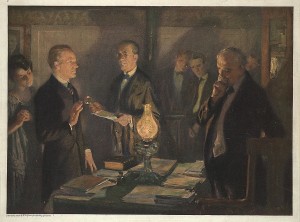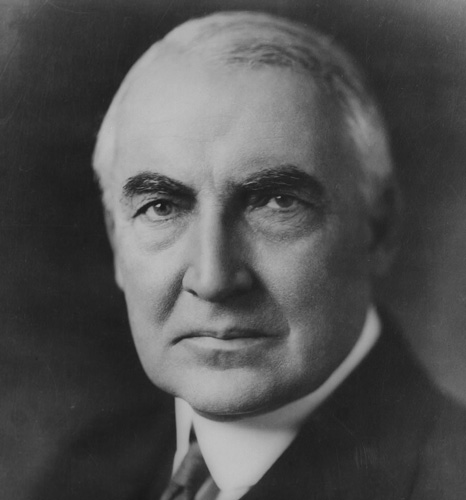I promise this is the last post of this series.
Coolidge believed that the wedding of government and business would lead to socialism, communism or fascism. Hoover considered Henry Wallace a fascist for supporting the McNary-Haugen bill. Hoover, ironically, was to bring on the Depression by progressive measures that might have been called a form of fascism. The farm bill would be re-introduced under Hoover and die. Only during the New Deal would it find enough support to become law. The summer of 1927 was peaceful and prosperous. It was the summer of Babe Ruth’s 60 home runs. The Yankees would win the World Series and end up with a winning percentage of 0.714, still unsurpassed. In September, Gene Tunney defeated Jack Dempsey in the fight marked by the “long count.” The “Jazz Singer” came out that fall, the first talking feature picture. Charles Lindbergh flew the Atlantic in May of 1927. He and Coolidge were much alike yet different. Both were shy and diffident but Lindbergh was happy to cash in on his fame while Coolidge refused all offers after he left office.
Coolidge arranged for Lindbergh to return to the states aboard the US cruiser, Memphis, where he was met by a crowd and by cabinet members, then there was a huge parade through New York City. Lindbergh and his mother stayed with the Coolidges at the temporary White House where Dwight Morrow, close friend of Coolidge from Amherst, introduced the young aviator to his daughter Ann. Aviation stocks, along with many others, soared and the Dow Jones Average by year end was at 200, the record high.
In his December 6, 1927 State of the Union message, he mentioned an economic slowdown and asked for the same things he had been requesting; sell Muscle Shoals, help farm cooperatives and keep spending down. In May of 1928, he complained to reporters about Congressional spending. “I am a good deal disturbed at the number of proposals that are being made for the expenditure of money. The number and the amount is becoming appalling.” He managed to get another tax cut passed including a cut in the corporate tax rate. The surplus that year was $398 million.

